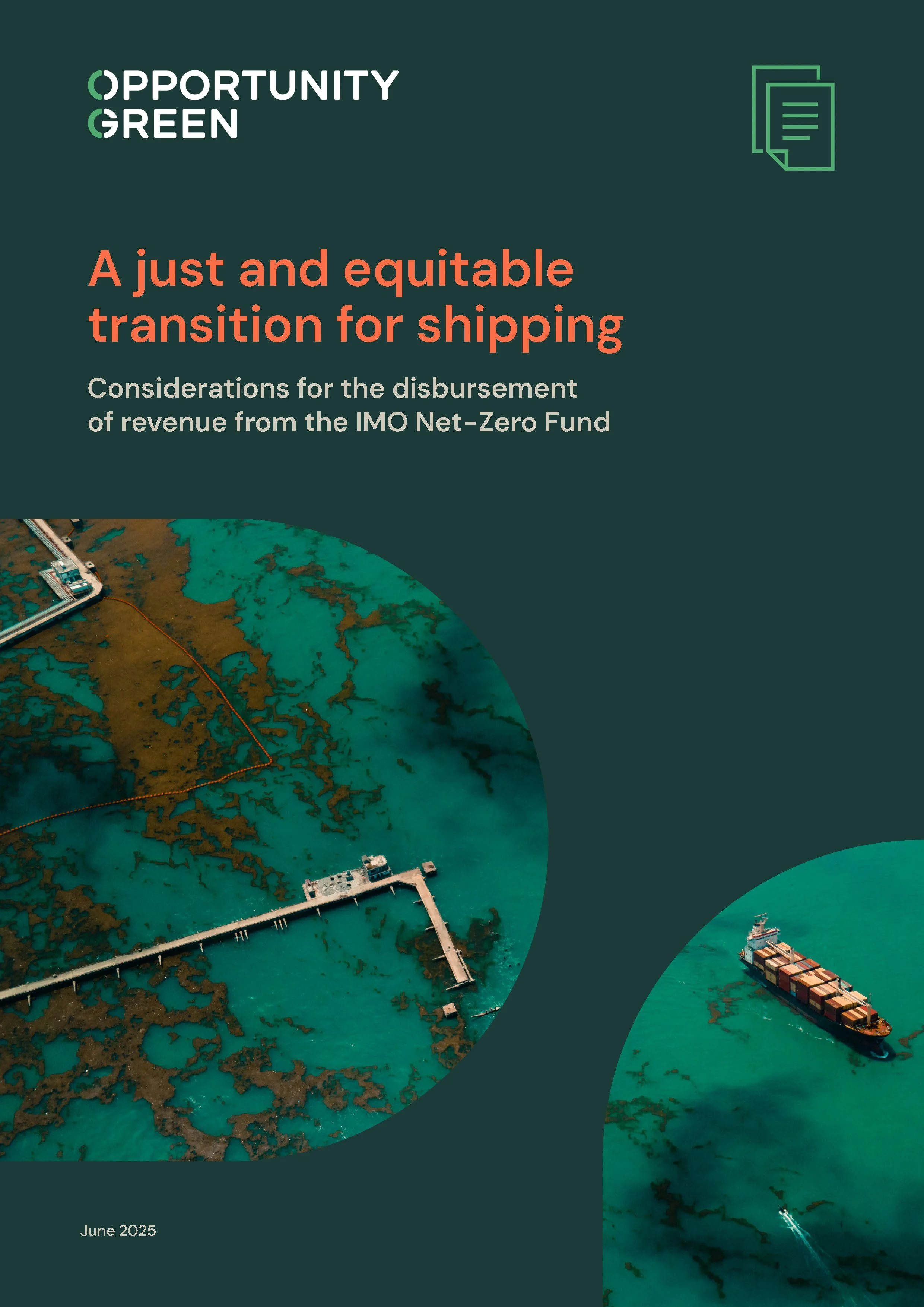Nigeria and the IMO Net-Zero Fund: financing a just transition and stability
New international shipping revenues could help Nigeria tackle conflict-driven climate challenges and scale renewable energy.
What is the IMO Net-Zero Fund?
The IMO Net-Zero Framework is a major new international regulation designed to reduce greenhouse gas emissions from international shipping. Due to be formally adopted in October, this is projected to raise around $10-15bn a year in revenue from 2028.
The framework’s main emissions reduction tool is a two-tier global fuel standard (GFS) that includes partial emissions pricing and rewards for ships using cleaner fuels or technologies (called ZNZs – zero or near-zero emission sources).
A dedicated IMO Net-Zero Fund will collect revenues from the emissions pricing and distribute them for several purposes, including ZNZ ‘rewards’ for ships using eligible energy sources, and for a range of purposes supportive of a just and equitable energy transition.
For a more detailed breakdown, read our in-depth guide to the IMO Net-Zero Framework.
Why it matters
Nigeria is highly climate-vulnerable – facing floods, desertification, and food insecurity, all of which drive instability and displacement. At the same time, renewables account for only a small share of the energy mix, with gas still at 72%.
The IMO Net-Zero Fund could deliver conflict-sensitive adaptation finance and enable a large-scale shift to solar, without deepening public debt.
Key Opportunities for Nigeria
Conflict-sensitive adaptation finance: Stabilise climate-affected regions and create enabling conditions for a clean energy transition.
Port resilience and efficiency: Upgrade Nigeria’s critical ports to reduce shipping cost impacts and build climate resilience.
Food security across supply chains: Invest in agriculture and distribution systems to protect communities from rising food insecurity.
Emma Fenton, Senior Director of Climate Diplomacy at Opportunity Green says:
“Nigeria is a clear example of how conflict-sensitive finance can create the enabling conditions for a just transition. The IMO Fund should help deliver that.”
Why is this important now?
Nigeria has enormous solar potential but lacks the financing to unlock it. The IMO Fund presents a unique chance to combine climate resilience with renewable energy leadership.
Actions
Download the report: A just and equitable transition for shipping
Contact our team to discuss how the IMO Net-Zero Fund could support Belize.


